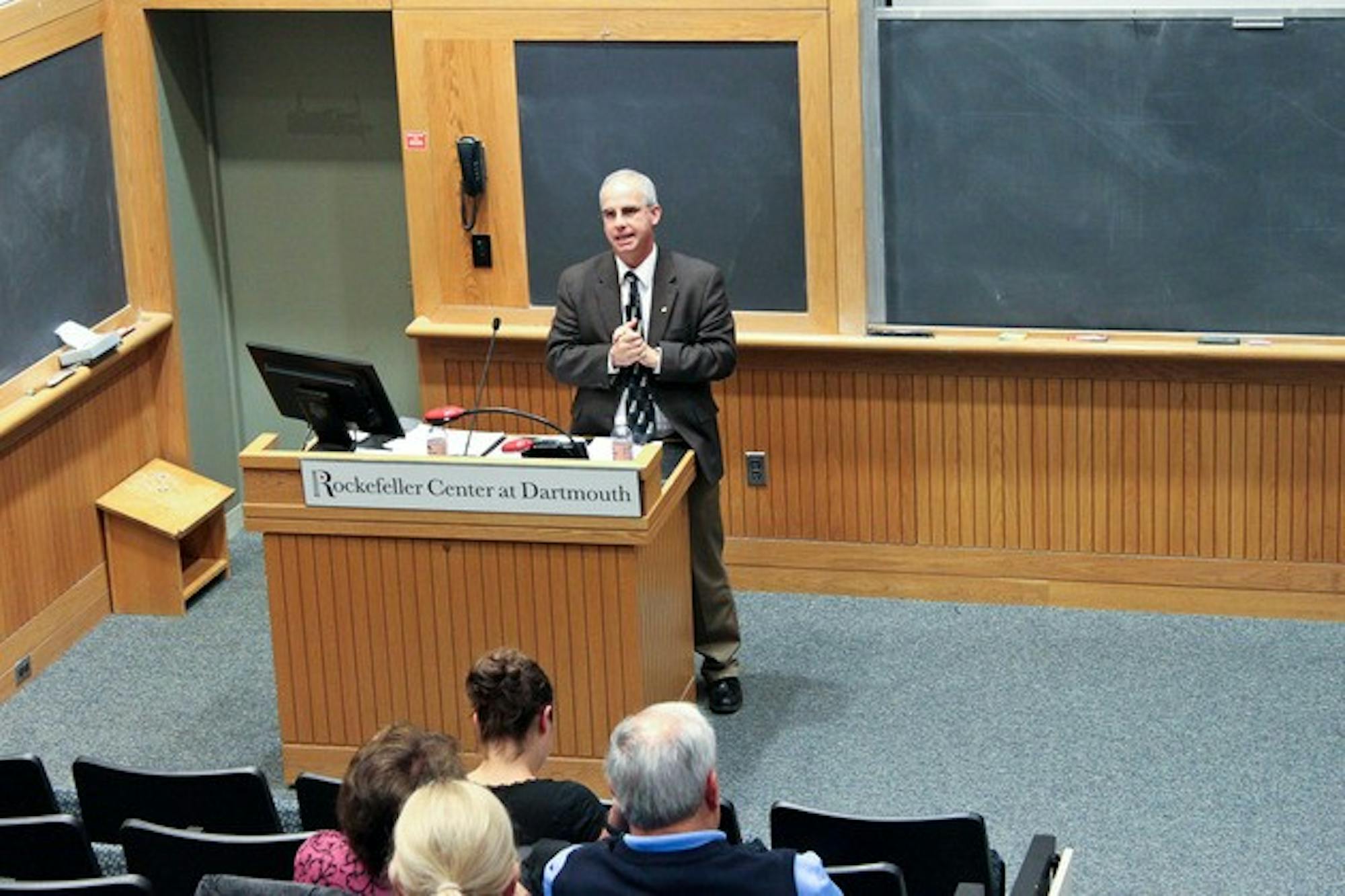Legislation requiring voters to present a photo ID at the polls has been controversial in New Hampshire since its introduction in the state House of Representatives and has also been a subject of national interest, according to Greabe.
In New Hampshire, the first attempt at such a law was so restrictive that it did not pass the House, Greabe said. The current version of the law will take effect Sept. 1, 2013 and will not affect the Nov. 6 election.
Voter ID laws are becoming increasingly common across the nation. New Hampshire is one of several states pursuing such laws and will join the 30 states that currently require some form of ID at the polls.
Charges of unconstitutionality namely, complaints made under the Equal Protection Clause present the chief obstacles to such laws, according to Greabe.
"It comes to constitutional law in interfering with the right to vote and discouraging disfavored votes," Greabe said. "I agree strongly that what the New Hampshire House was planning on doing was patently unconstitutional."
The voter ID law stems from a partisan attempt to prevent students from voting in college towns, according to Greabe. Besides Hanover, New Hampshire has several towns where out-of-state students make up a large part of the voting population, including Keene, Durham and Plymouth.
Republicans, who control the New Hampshire House, have been trying to exclude students from voting because they tend to vote for Democrats and against Republican interests, Greabe said. He cited Gregory Sorg, a Republican state representative who championed the initial restrictive bill and who dismissed the student voting population as a group of "transient inmates" whose "dearth of experience and plethora of easy self-confidence" threaten to "drown out" permanent residents' interests.
Students' and other mobile individuals' voting eligibility rests on how domicile is interpreted, according to Greabe. Domicile, the legal basis for voting eligibility, requires a citizen's physical presence in the state, as well as a lack of intent to be domiciled elsewhere, Greabe said. A person has exactly one domicile at any time, while he or she may have multiple residences.
The original New Hampshire bill allowed the state to define the domicile of each potential voter, according to Greabe. Many students moving to college view the state as their home for the duration of their study and do not identify with their state of origin, Greabe said.
"Students should have the latitude to make that choice and should accept all the other civic entitlements and obligations associated with it," he said. "But they shouldn't make a strategic choice."
Greabe pointed out, however, that intent is difficult to prove in court, as is domicile.
"I don't think New Hampshire's voter ID law is likely to be attacked by a court on constitutionality," he said.
One of the main criticisms of the laws questions their usefulness, Greabe said. In the question-and-answer portion of the lecture, several members of the audience pointed out the lack of evidence of vote fraud, allegedly a target of ID laws.
The lecture is one of many election and voter awareness events taking place across campus, the state and the nation.
"We're very concerned that everyone knows what the laws are and with trying to get students to vote," Virginia Dresser, a representative from the League of Women Voters of the Upper Valley, which co-sponsored the event, said.
Student audience members said that the lecture prompted them to consider their voting rights and possible disenfranchisement should voting laws become more restrictive.
"As a student, I feel really immersed in the civic culture of New Hampshire and feel somewhat disconnected [from] my home state's policies," Catie O'Sullivan '14 said. "For this reason, I choose to vote in New Hampshire."
Voter restrictions, like gerrymandering, can be ways for legislators in power to manipulate electoral systems according to partisan interests, according to Matthew Cravens, a visiting government professor at the Rockefeller Center who introduced Greabe. Greabe said that this was the biggest implication of voter ID laws.
"I don't see this as a partisan issue," Greabe said. "It's not a Democratic principle that the right to vote should be easy people should be given the right to vote as a default."
The lecture was titled "Your Vote Is Your Voice: How Will the New Hampshire Voter ID Law Affect You?" and was sponsored by the Rockefeller Center and the League of Women Voters of the Upper Valley.




